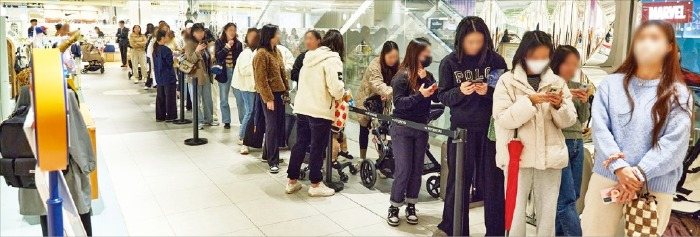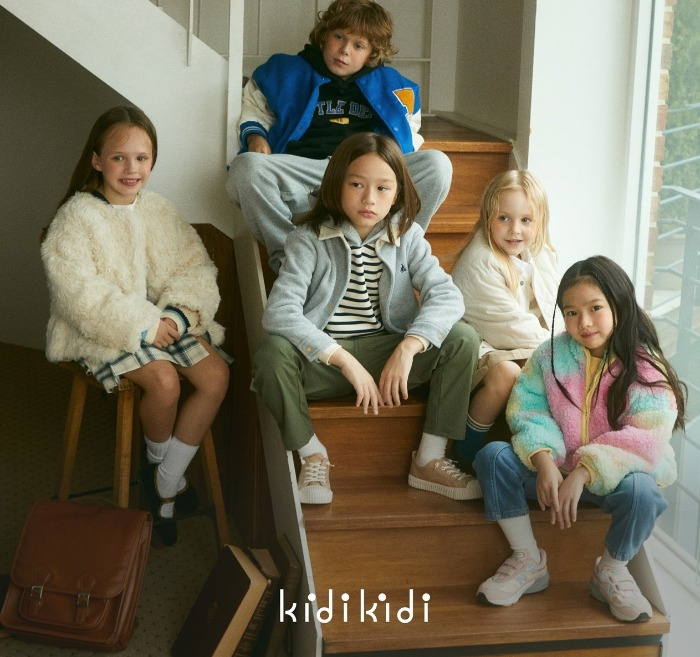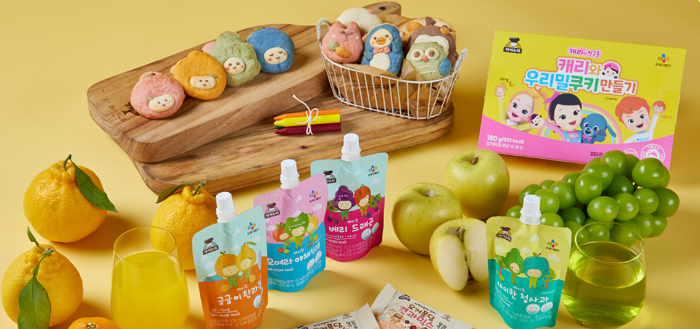Retail
Premium children's brands buck falling birth rate in Korea
Clothing and food makers target millennial parents; Kidikidi eyes Chinese kids clothing market
By Mar 12, 2024 (Gmt+09:00)
2
Min read
Most Read
LG Chem to sell water filter business to Glenwood PE for $692 million


Kyobo Life poised to buy Japan’s SBI Group-owned savings bank


KT&G eyes overseas M&A after rejecting activist fund's offer


StockX in merger talks with Naver’s online reseller Kream


Mirae Asset to be named Korea Post’s core real estate fund operator



Premium children's clothing and food brands have bucked the economic slowdown in a country grappling with the world’s lowest birth rate as South Korean retailers and food makers have hit the mark with high-end shopping platforms and food products targeting young parents, or millennials and Generation Z.
Kidikidi, a shopping platform for children's clothing under South Korean fashion and retail company Eland World Ltd., has seen its sales volume skyrocket 230% over the past four years.
In 2024, it targets 50% on-year growth in sales to overtake its bigger rival Boribori operated by LF Corp., formerly LG Fashion.
Eland World launched Kidikidi in 2020 with ambitions of becoming the Musinsa of the children's clothing market.
Musinsa is the largest fashion platform in South Korea, appealing to teenagers and twentysomethings with fast and street fashion.
In 2023, Kidikidi recorded 100 billion won ($76 million) in sales volume, more than three times its 2020 sales of about 30 billion won.

ELAND'S FASTEST-GROWING BUSINESS
“Kidikidi will be the fastest-growing business of Eland World,” he was quoted as saying by Eland.
It focuses on new designer brands appealing to young parents, or those born between the 1980s and early 2000s. Its offline stores are staffed by employees with children.
A total of 1,500 brands are available at Kidikidi, with new designer brands accounting for 40%.
Its pop-up store at Hyundai Department Store Pangyo drew around 20,000 people on the first day of business on Feb. 19. Pangyo, about 20 kilometers south of Seoul, is known as the Silicon Valley of South Korea.
Kidikidi is gearing up for its foray into China this year. Eland’s Chinese arm is preparing to launch an online platform specializing in children’s clothes in China. It will offer delivery services via Cainiao, a logistics company established by Alibaba Group, a Chinese e-commerce leader.

FOOD PRODUCTS
Inuri, a children's food brand under CJ Freshway, a catering service provider, raked in 130 billion won in sales in 2023, its highest-ever revenue. Over the past three years, its revenue has grown at an average rate of 25%.
CJ Freshway introduced Inuri in 2014 to cater to infants and toddlers with premium and customized food products, as well as education programs.
It produces high-quality products certified as eco-friendly, organic, and antibiotic-free and has emerged as CJ Freshway’s core growth driver.
The company also introduced its private brand (PB) DIY meal kits, with the concept of children having fun making food by themselves.
“Despite the declining number of infants and toddlers, the need for high-quality food ingredients for kids will grow with the launch of before- and after-school care programs at elementary schools,” said a CJ Freshway official.
Write to Sul-Li Jun and Hun-Hyoung Ha at sljun@hankyung.com
Yeonhee Kim edited this article.
More to Read
-
 EconomyS.Korea’s fertility rate hits new world-record low in 2023
EconomyS.Korea’s fertility rate hits new world-record low in 2023Feb 28, 2024 (Gmt+09:00)
4 Min read -
 MetaverseS.Korea's LG Uplus opens children-specialized metaverse Kidstopia
MetaverseS.Korea's LG Uplus opens children-specialized metaverse KidstopiaFeb 23, 2023 (Gmt+09:00)
1 Min read -
 Korean startupsKids platform Norit wins D.Camp January pitch competition
Korean startupsKids platform Norit wins D.Camp January pitch competitionJan 30, 2023 (Gmt+09:00)
1 Min read -
 Korean startupsS.Korea's startup Bunker Kids raises $1.5 million in Series A funding
Korean startupsS.Korea's startup Bunker Kids raises $1.5 million in Series A fundingDec 13, 2022 (Gmt+09:00)
1 Min read -

-

Comment 0
LOG IN


